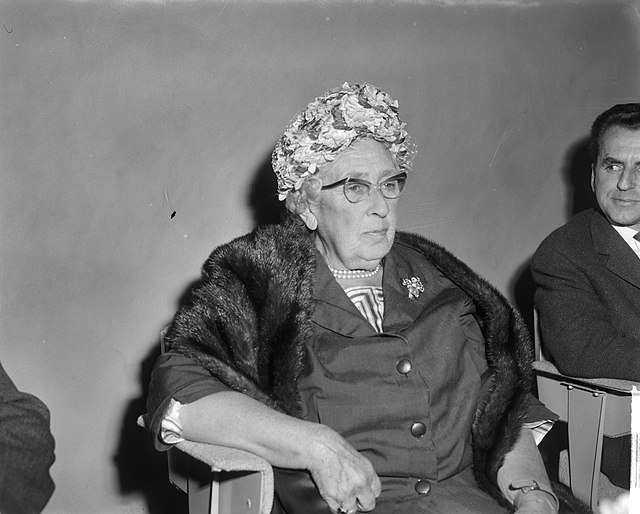
Agatha Christie, the Queen of Mystery, could well be the most popular author in modern times. Outsold only by the Bible and Shakespeare, her novels have sold a staggering two billion copies and counting in the English language alone. Over the course of her life, she wrote 66 crime novels, six other novels, 24 plays — including the world’s longest-running murder mystery play, “The Mousetrap” — and more than 150 short stories. She is best known for her works revolving around fictional detectives Hercule Poirot and Miss Marple.
Christie was born into a wealthy upper-middle-class family in Torquay, Devon, in England, and was educated at home by her mother. She began writing detective fiction while working as a nurse during World War I. Hercule Poirot, a peculiar and arrogant detective, was introduced in her first novel, “The Mysterious Affair at Styles.” He reappeared in more than 30 novels and 50 short stories before returning to Styles, where he died in “Curtain.”
Readers were introduced to elderly spinster amateur detective Miss Jane Marple in “Murder at the Vicarage.” Like Poirot, she too went on to appear in several other books and was also adapted to the screen. A hybrid based on friends of Christie's step-grandmother and aunt, Miss Marple reflected Christie’s penchant for taking inspiration for her books from her daily life. She incorporated locations she traveled to and the main characters, suspects, and even victims were people that she knew personally. Her personal experiences became the rich fabric of the stories she weaved.
Of course, no biography of Christie would be complete without acknowledging her own perplexing disappearance. On December 3, 1926, reeling from her mother’s recent death and the request for a divorce from her first husband so that he could be with his mistress, Christie fled into the night. The next morning her abandoned car was found several miles away by Surrey Police, the apparent result of a car accident.
Thousands of policemen, eager volunteers, fellow mystery writer Sir Arthur Conan Doyle, and even a psychic partook in a manhunt. Ten days later, she was finally discovered at the Hydropathic Hotel, where she had registered under the name Theresa Neale. She showed no recognition of her husband when he approached, and the conclusion that was eventually settled upon to explain the whole incident was dissociative fugue (amnesia) and a possible concussion.
Christie rarely spoke of the incident, and it was left out of her autobiography entirely. She died of natural causes in January 1976 at age 85, leaving behind perhaps the greatest mystery of all: her own.
